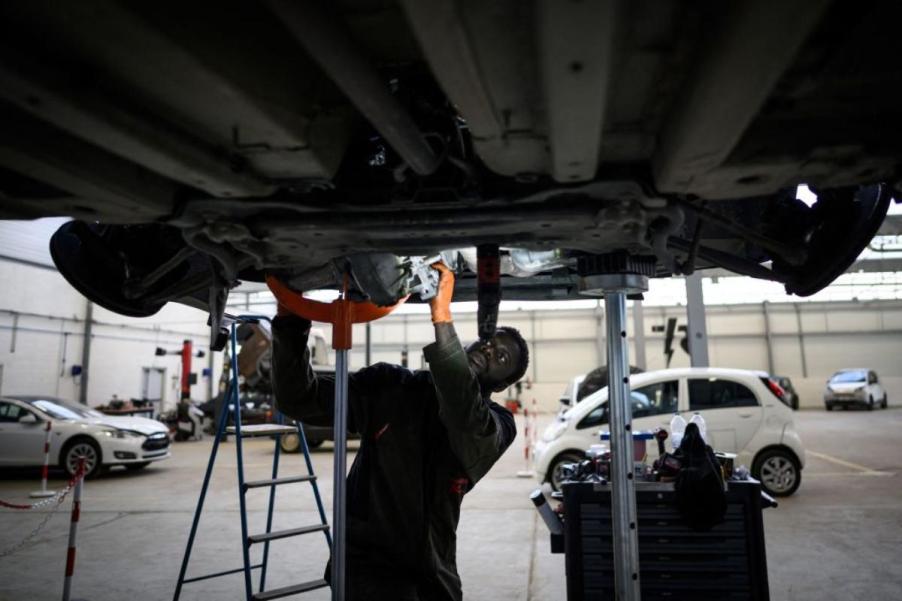
Why Aren’t There Enough EV Technician Shops?
EVs are becoming more popular as they offer many benefits, such as lower emissions, lower fuel costs, and performance. However, one of the main challenges that EV buyers face is the lack of adequate charging infrastructure.
The lack of charging infrastructure is a barrier to EV adoption
EV drivers may not be able to find a convenient and reliable place to recharge their batteries. This is especially true for those traveling long distances or living in densely populated areas. A survey by McKinsey revealed that consumers rank limited access to efficient charging stations as the third most serious barrier to EV purchase.
The survey also found that with EV prices declining and ranges expanding, charging could soon become the top barrier. The International Energy Agency (IEA) estimates that there will be 2.7 million public charging points worldwide at the end of 2022. With 120 million EVs on the road in China, Europe, and the United States by 2030, this may not be enough.
It’s essential to develop and deploy more charging infrastructure in anticipation of the growth in EV sales. This would require coordination and collaboration among local, state, and federal governments, utilities, automakers, and charging service providers. It would also require addressing the technical, economic, and regulatory challenges that affect the availability and accessibility of charging stations.
A lack of EV repair shops is another less-discussed issue
The lack of EV repair shops is another obstacle consumers are faced with. EVs have different components and systems than conventional vehicles, such as batteries, electric motors, power electronics, and charging equipment. These require specialized tools, equipment, and training for technicians to service and repair them.
According to a report by Mordor Intelligence, only 28% of independent repair shops have invested in tools and equipment to specifically service EVs. Only 31% have invested in additional or specialized training for technicians. This means that most repair shops are not equipped or qualified to handle EVs.
With the availability and cost of maintenance and repair services in limbo, it’s understandable for buyers to be deterred. Compounding matters, there hasn’t been much meaningful discussion on how to remedy the situation.
The above report also revealed that a large percentage of repair shops specializing in EV service don’t advertise that side of their business. While that’s quite understandable since so few car owners drive EVs. Over 50% of auto repair shops complained that they’re not kept up to date on the latest EV trends.
In addition to that, 55% of those surveyed are under the impression that they have decades or more before the EV industry affects them directly. Then there are a small percentage who don’t believe their auto shop will ever be affected. This suggests a lack of urgency and motivation to adapt to the changing market conditions and consumer preferences.
The lack of EV repair shops reduces consumer confidence and their interest in buying an EV. Not only does there need to be more collaboration among the repair shops, suppliers, manufacturers, and policymakers but more investment as well. All these factors are required to foster a more supportive environment for the EV market.
Ford and others are stepping up
In an article published by Ford Authority, Ford has sponsored or rolled out several new EV technician training programs across the US. The auto manufacturer is adding these specialized courses to the Automotive Student Service Educational Training (ASSET) curriculum at various technical schools and community colleges. Additionally, Ford launched Service Educational Training (ASSET) programs at select technical schools and community colleges.
Along with an EV technician training program at the Universal Technician Institute (UTI), Ford is providing scholarship funding for two-year apprenticeships. It has also launched a $1 million dollar scholarship for EV technician training. Nevertheless, as the article points out, the US still suffers a significant shortage of qualified EV technicians and repair shops.
Other big names doing their part to correct the talent shortage include Tesla and the Siemens Foundation. The latter is dedicating $30 million toward training EV technicians. The industry will need all the help it can get. The Bureau of Labor Statistics estimates that the U.S. requires an additional 80,000 electrician jobs annually through 2031.
Failing to meet those figures may result in skyrocketing repair and warranty costs. On top of that, such a shortage could lead EV owners to wait days or weeks, not merely hours, for repairs.


